If Your Cat Bites You, This Is What They’re Actually Trying to Say
When your cat bites you, it is not just a random attempt from your furry friend; instead, it is packed with meaning. Understanding the reasons behind this behavior helps spot stress, hunger, affection, or even pain. Here’s what research and feline experts say your cat is trying to communicate.
It’s Not Always About Anger
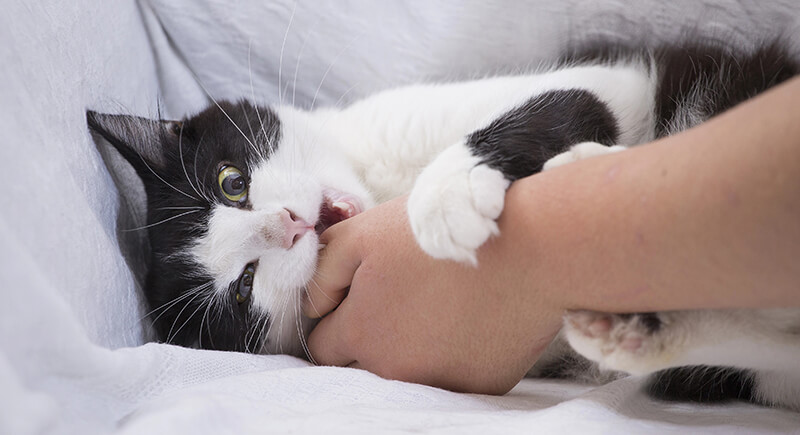
Credit: iStockphoto
A bite during petting might be what experts call a “love bite.” According to the ASPCA, overstimulation can trigger this behavior. Cats have sensitive nerve endings in their skin, so what starts as pleasurable can quickly become too much. That sudden nip is their polite way of saying, “I’ve had enough.”
They Want Something Right Now

Credit: iStockphoto
A study published in the Journal of Veterinary Behavior found that cats quickly learn which behaviors elicit a response. A quick bite could be their version of a tap on the shoulder. If a cat bites your hand when you’re on your phone or computer, that may be a demand for attention.
Your Cat Could Be Anxious
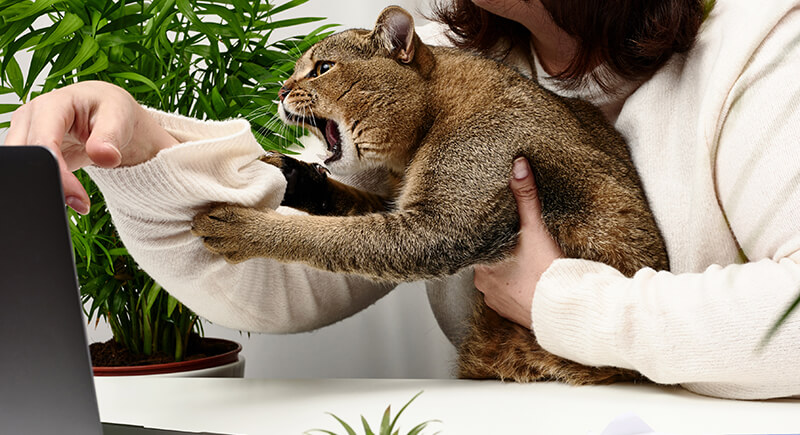
Credit: iStockphoto
Biting might be a stress reaction for felines. The sudden changes in the home, such as new people, pets, routines, or even rearranged furniture, can be stressful for pets. All this and more can trigger anxiety in cats. That tension can manifest as sudden biting.
It Might Just Be Play Mode
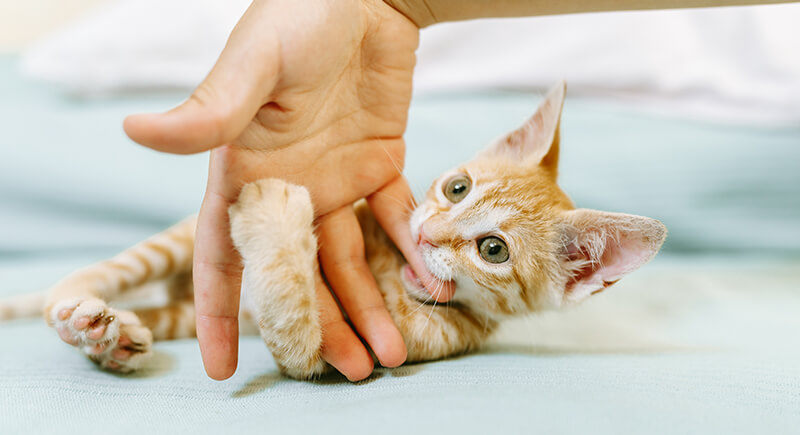
Credit: iStockphoto
Kittens often bite during play because they’re practicing hunting skills. Play biting is common and is usually accompanied by energetic body language, such as tail twitching or wide eyes. Adult cats retain this behavior, especially if they were weaned too early.
You Smell Like Another Animal

Credit: iStockphoto
Cats have 200 million scent receptors and are incredibly sensitive to smell. If you’ve been around another animal, your pet kitty might bite as a defensive reaction. As per PetMD, they may not immediately recognize your altered scent and act out until they feel reassured.
Pain Could Be Behind It
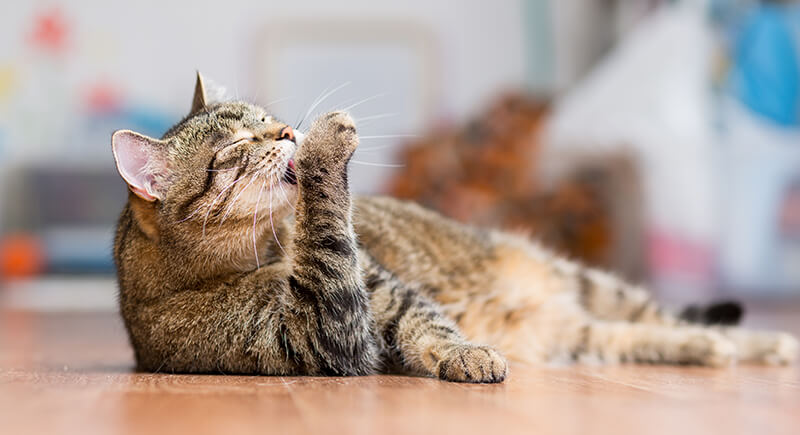
Credit: iStockphoto
Sudden biting, especially from a cat that is usually gentle, can signal discomfort. If something like this happens, check for signs like limping or licking one area excessively. Pain can cause these animals to react defensively, especially when the sore spot is touched.
Too Much Petting In One Spot
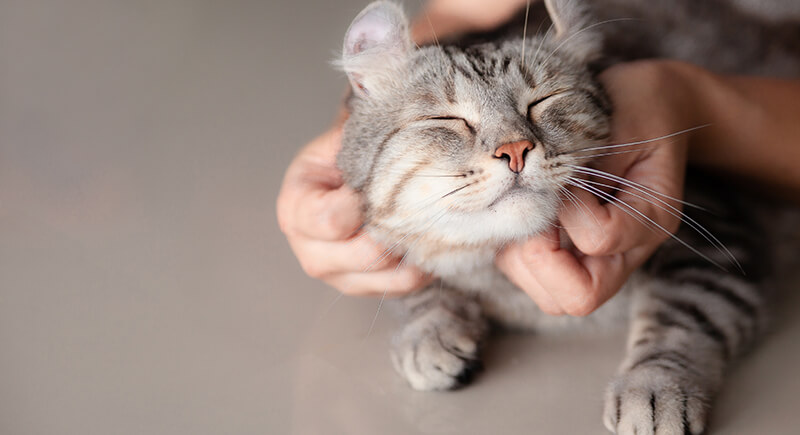
Credit: iStockphoto
Dr. Kelly Ballantyne, a veterinary behaviorist, explains that petting-induced aggression is a real thing. Repetitive strokes in the same area, especially on the belly or tail base, can irritate some cats. Watch for tail flicks or ear shifts; they’re signs a bite might be coming.
It Could Be A Flashback
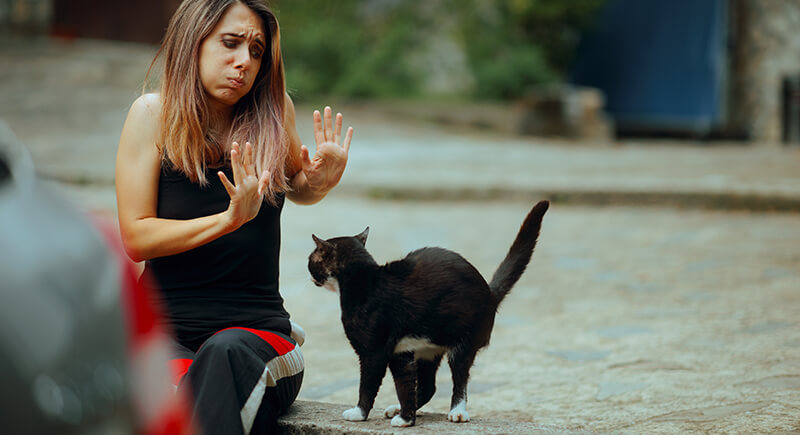
Credit: iStockphoto
Some rescue cats have experienced trauma, so a hand approaching quickly might feel threatening, even if the intention is kind. The American Society for the Prevention of Cruelty to Animals disclosed that past mistreatment can lead to sudden defensive biting, especially when the cat feels cornered.
Your Cat Wants To Be Left Alone
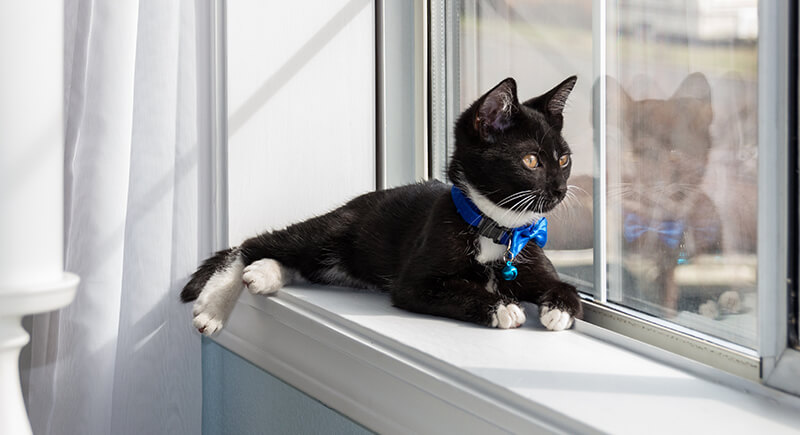
Credit: iStockphoto
Sometimes, biting can be a clear “back off” message. If a cat walks away and you follow, don’t be surprised by a warning nip. If you’re not sure when your cat wants to be left alone, look for body language such as ears back, eyes narrowing, and a tail low before the bite occurs.
It Might Be Misguided Affection
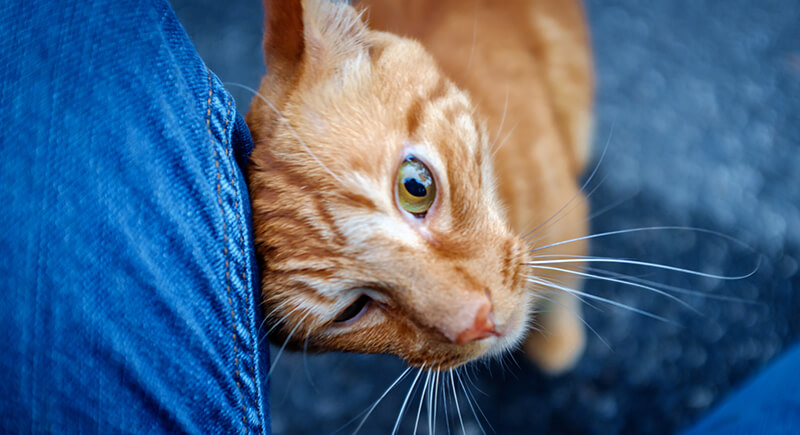
Credit: iStockphoto
Biting during head rubs can be confusing. However, some cats combine grooming with gentle nibbling, which is a regular part of feline social behavior. The Humane Society has noted that this behavior mimics how cats groom each other in bonded pairs, and it’s strangely endearing.
They’re Bored And Restless
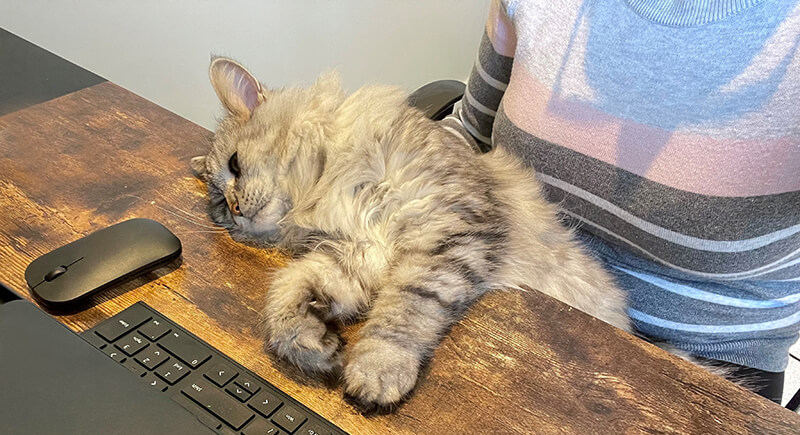
Credit: iStockphoto
Cats need mental stimulation, and if they don’t get it, they might resort to giving you their teeth just to spark a reaction. Make sure your cats have toys, climbing spaces, and window perches to reduce unwanted behaviors caused by boredom or under-stimulation.
A Warning Bite, Then Scratch
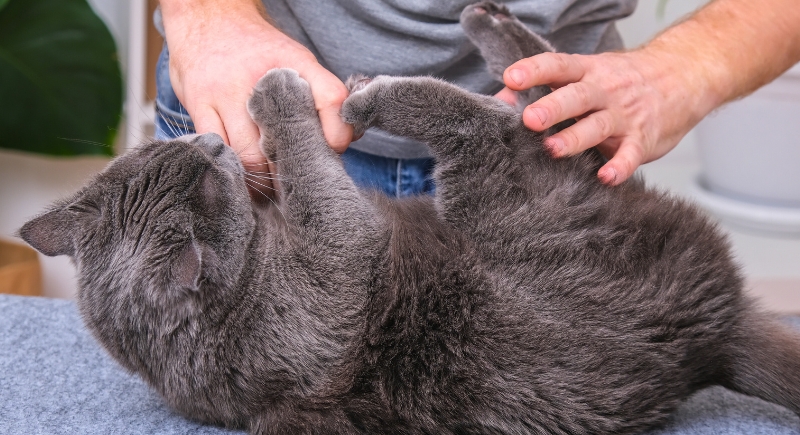
Credit: iStockphoto
Some cats give a “test bite” before escalating to claws. This is especially common in territorial cats. According to a 2020 article in the Journal of Feline Medicine and Surgery, cats who feel their space is threatened will bite first and scratch later.
They Don’t Like Being Picked Up
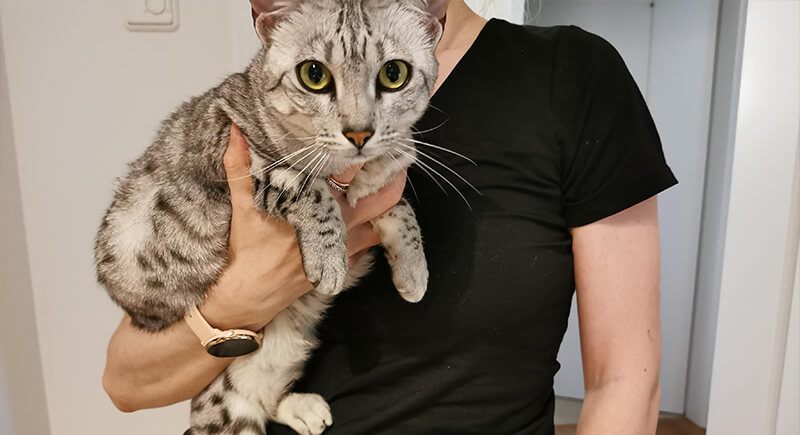
Credit: Reddit
Cats aren’t always fond of being held. Some tolerate it briefly before biting to say, “Put me down.” Petfinder’s guidelines suggest letting cats initiate contact on their own terms. Forcing physical closeness on them is a common reason for sudden, sharp bites, especially in sensitive or nervous cats.
Biting Is Part Of Grooming
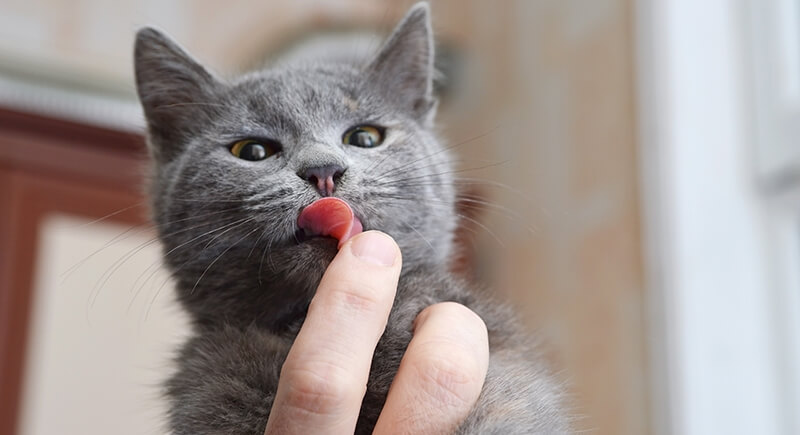
Credit: iStockphoto
If your cat licks your hand and then bites it, it’s not mixed signals. It’s a grooming behavior. Felines often intersperse licks with nibbles when cleaning each other. The Cat Fanciers’ Association confirms this is how some cats show trust and affection—by treating you like another cat.
It’s A Hormonal Reaction
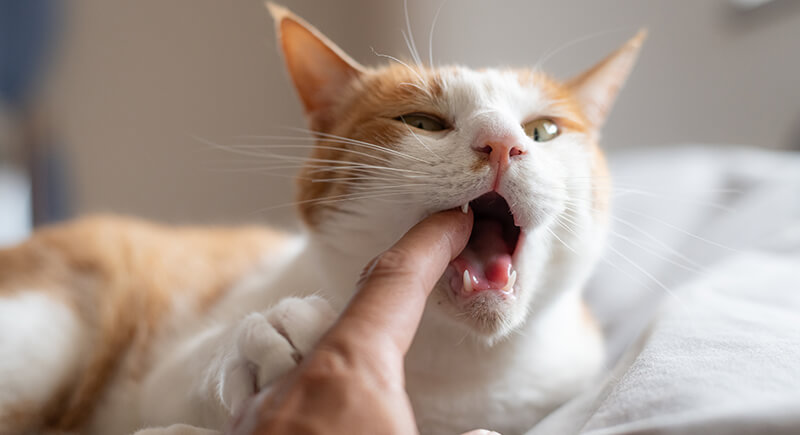
Credit: iStockphoto
Unneutered males and females in heat often show erratic behaviors, including biting. The American Veterinary Medical Association notes that biting can be related to mating behaviors, especially if your cat isn’t spayed or neutered. Fixing this is often as simple as a trip to the vet.